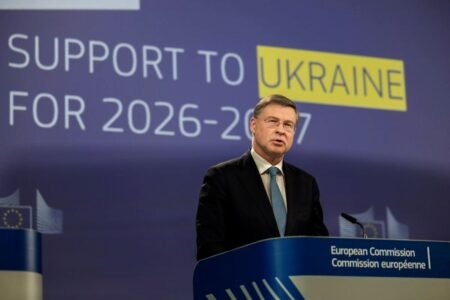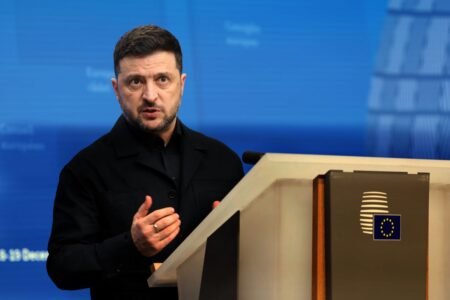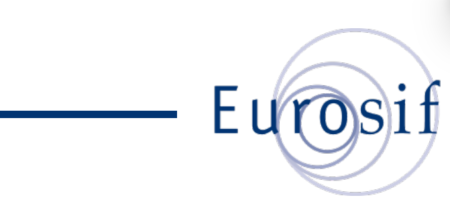(BRUSSELS) – The European Commission outlined in the 2022 ‘European semester cycle of economic policy coordination’ Wednesday a greener and more digital economy as Europe’s economy rebounds from the crisis.
The European Semester Autumn Package includes the Annual Sustainable Growth Survey, Opinions on euro area Draft Budgetary Plans (DBPs) for 2022, policy recommendations for the euro area and the Commission’s proposal for a Joint Employment Report.
Economy Commissioner Paolo Gentiloni said: “The European economy is growing strongly but being buffeted by headwinds: sharply increasing COVID cases, spiking inflation and ongoing supply-chain issues.
“For the euro area, we call for a moderately supportive fiscal stance for 2022, with a focus on investment, equipping workers with new skills and safeguarding the solvency of viable firms.”
The Annual Sustainable Growth Survey (ASGS) steers the EU away from crisis management towards a sustainable and fair recovery that strengthens the EU economy’s resilience. It also sets out how the Recovery and Resilience Facility(RRF), the centrepiece of NextGenerationEU – will be more deeply integrated into the new European Semester cycle.
The Recovery and Resilience Facility, with a budget of EUR 723.8 billion in grants and loans, will have a central role in building a resilient economy that puts fairness at its heart. With the EU’s priorities embedded in the RRF, the European Semester will now better guide Member States in making a success of the green and digital transitions, and building a more resilient EU economy.
The Commission has now endorsed 22 national recovery and resilience plans and the Council has approved all of these. This has unlocked pre-financing disbursements of 52.3 billion for 17 Member States since August 2021. Overall, the plans approved by the Council so far represent 291 billion in grants and 154 billion in loans. The focus now turns to implementing the recovery plans on the ground.
The Commission’s Opinions on the 2022 Draft Budgetary Plans are based on the fiscal policy recommendations adopted by the Council in June 2021. They take into account the continued application in 2022 of the general escape clause of the Stability and Growth Pact.
Member States are unwinding the temporary emergency measures and increasingly focusing support measures on sustaining the recovery. RRF grants will in 2022 fund 24% of total recovery support measures. The absorption of RRF grants is set to be frontloaded: Member States are expected to spend over 40% of the total amount of allocated RRF grants, pending the decision to disburse following the fulfilment of the milestones and targets. Nationally financed investment is planned to be preserved or broadly preserved in 2022 in all Member States, as recommended by the Council.
The euro area fiscal stance is projected to be expansionary over the 2020-2022 period. The positive contribution coming from public investment and other capital spending financed by both the national and EU budgets is important, but the main driver of the fiscal expansion in 2021 and 2022 is nationally financed net current primary expenditure. In several Member States including some high-debt ones, the projected supportive fiscal stance is set to be driven by higher nationally financed current spending, or by unfunded tax cuts. In some cases, this is expected to have a sizeable impact on the underlying fiscal position. In about a quarter of Member States the supportive fiscal stance is expected to be driven by investment, both nationally and EU financed.
Euro area recommendation and Alert Mechanism Report
The recommendation on the economic policy of the euro area presents tailored advice to euro area Member States on those topics that affect the functioning of the euro area as a whole. It recommends that euro area Member States take action over 2022-23, individually and collectively within the Eurogroup, to continue to use and coordinate national fiscal policies to effectively underpin a sustainable recovery. The recommendation calls for a moderately supportive fiscal stance to be maintained in 2022 across the euro area and for fiscal policy measures to gradually pivot towards investments that promote a resilient and sustainable recovery. Likewise, it highlights the importance of a transition from emergency to recovery measures in labour markets by ensuring effective active labour market policies, in line with the Commission Recommendation on an Effective Active Support to Employment following the COVID-19 crisis (EASE). Euro area Member States should maintain an agile fiscal policy to be able to react if pandemic risks re-emerge. Once economic conditions allow, euro area Member States should pursue fiscal policies aimed at achieving prudent medium-term fiscal positions and ensuring debt sustainability, while enhancing investment. The recommendation also calls for work to continue on completing the Banking Union, strengthening the international role of the euro, and for supporting the process of creating a digital euro.
The Alert Mechanism Report (AMR) is a screening measure to detect potential macroeconomic imbalances. This year’s AMR concludes that in-depth reviews (IDRs) are warranted for 12 Member States: Croatia, Cyprus, France, Germany, Greece, Ireland, Italy, the Netherlands, Portugal, Romania, Spain, and Sweden. These Member States were subject to an IDR in the previous annual Macroeconomic Imbalance Procedure (MIP) surveillance cycle, and were considered to be experiencing imbalances (Croatia, France, Germany, Ireland, the Netherlands, Portugal, Romania, Spain, and Sweden) or excessive imbalances (Cyprus, Greece, and Italy). The new IDRs will assess how those imbalances have developed, analysing their gravity, evolution and the policy response delivered by Member States, to update existing assessments and assess possible remaining policy needs.
Enhanced surveillance report and post-programme surveillance reports
The twelfth enhanced surveillance report for Greece finds that the country has further progressed towards achieving the agreed commitments, despite delays encountered in some areas which are partly linked to the challenging circumstances caused by the COVID-19 pandemic and the catastrophic wildfires in August 2021. The report could serve as a basis for the Eurogroup to decide on the release of the next set of policy-contingent debt measures.
The post-programme surveillance reports for Spain, Portugal, Cyprus and Ireland find that all four Member States retain their capacity to service their outstanding debt.
Questions and answers on the European Semester Autumn 2022 Package
Communication on the Annual Sustainable Growth Survey 2022
Communication on the 2022 Draft Budgetary Plans








